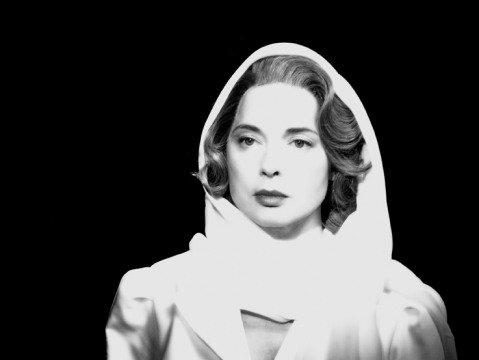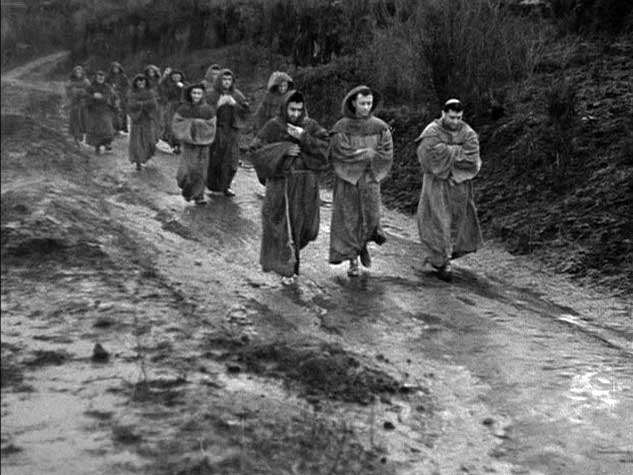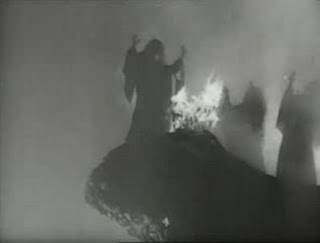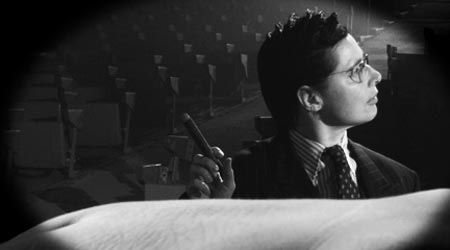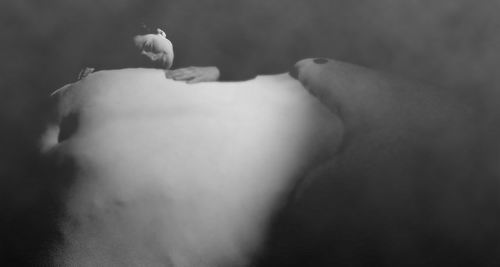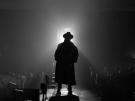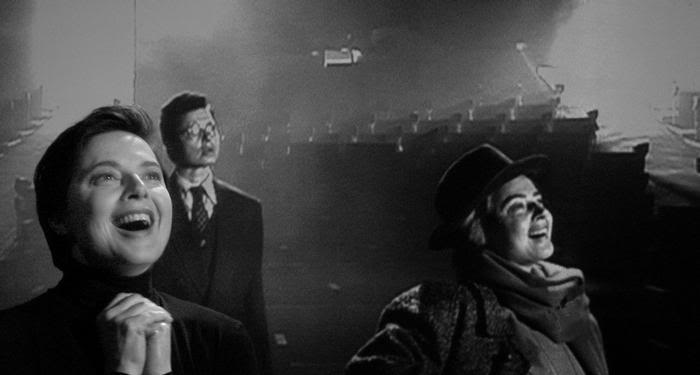From the Chicago Reader (June 16, 2006). — J.R.
My Dad Is 100 Years Old
*** (A must see)
Directed by Guy Maddin
Written by and starring Isabella Rossellini
In May 1948 Ingrid Bergman wrote a letter to director Roberto Rossellini: “Dear Mr. Rossellini, I have seen your films Rome, Open City and Paisan and I enjoyed them very much. If you need a Swedish actress who speaks English very well, has not forgotten her German, is barely comprehensible in French and who can only say ‘I love you’ in Italian, I am ready to come to Italy to work with you.”
She was the biggest female star in Hollywood at the time, and the films she mentioned were art house hits. She and Rossellini were married to other people, and the scandal of their subsequent affair led Colorado senator Edwin Johnson to try to bar her from appearing in movies, declaring on the floor of the Senate, “No one can reflect upon her sudden plunge from the highest pinnacle of respect to the gutter without feeling that she is the victim of some kind of hypnotic influence. . . . RKO publicity brazenly termed Rossellini inspired. If this swine is inspired, he is inspired by the devil.” The couple stayed together for seven years, had three children, and collaborated on five features.
In celebration of Rossellini’s centenary, this week the Music Box is showing his devout and lovely The Flowers of St. Francis — made in 1950, around the time Bergman became pregnant with their first child and Rossellini was having his marriage annulled. It isn’t a bad choice, though I’d have preferred Germany, Year Zero (1947), Europa ’51 (one of his features with Bergman, 1952), India (1959), or The Rise of Louis XIV (1966) — all difficult to find, as are most of his other films, which were mainly flops. On the same program is the comically irreverent and contradictory 16-minute tribute My Dad Is 100 Years Old (2005), written by and starring Isabella Rossellini, daughter of Rossellini and Bergman.
An actress and former model who turns 54 this month, Isabella Rossellini seems to be more of a film buff than anyone else in her family, and My Dad is an intense and touching effort to reconcile her cinephilia with the world’s indifference to film history. Her director, Guy Maddin, is also a cinephile, one whose style is that of a surreal antiquarian, usually shooting, as here, in black and white on cluttered, labyrinthine sets. Her father wasn’t a cinephile. His real interest, she points out, was the “quest for knowledge”; he devoted the last part of his life to making low-budget educational films for television, having already run through numerous styles of filmmaking — fascist propaganda, neorealism, fantasy, melodrama, epic, documentary — like a clothes merchant rummaging through his inventory. He was often a bit of a hustler too.
Maddin has directed My Dad in an anti-Rossellini style that’s full of artifice and typical of Maddin’s own work, including The Saddest Music in the World, a 2003 feature starring Isabella. Maddin’s style is based on nostalgia for old films, and as Isabella’s film struggles to reconcile the past with the present it acknowledges how unfashionable old movies are, including her father’s, especially in America (the only clips she uses are from Open City). Roberto Rossellini’s most famous motto was “Things are there — why manipulate them?” but this film revels in its artificiality.
Roberto Rossellini was one of the heroes of 50s French auteurist criticism, exemplifying personal, independent filmmaking, along with Max Ophuls, Nicholas Ray, Jean Renoir, and Orson Welles. But while Isabella is My Dad‘s auteur, she isn’t the director — though near the end she fulfills both roles, directing Maddin to stop moving his camera around pointlessly and pretentiously, citing her father’s taste in such matters.
In making My Dad Isabella parts company with her twin sister, Ingrid, a professor of Italian Renaissance literature in Manhattan who has publicly called the film disrespectful and inappropriate — though it’s hard to imagine someone putting together a more respectful and appropriate tribute, since Rossellini left behind a film legacy that’s in even more disarray than Orson Welles’s. (There were few filmmakers less like Rossellini than Welles, though both men grew up as spoiled rich kids, or less sympathetic to Rossellini — Welles once scornfully called Rossellini an amateur. Yet a recurring image in My Dad, a bubbling witch’s cauldron, closely resembles the opening of Welles’s Macbeth.)
In interviews Isabella has credited Maddin with persuading her to play nearly all the characters in the film as a way to clarify her feelings about the material. Besides herself, she plays Charlie Chaplin, Federico Fellini, Alfred Hitchcock (one of Bergman’s key directors), David O. Selznick (one of her key producers, who also worked with Rossellini), and her mother, and she’s the voice of her father — all of whom, except her mother, debate what cinema should be in a deserted, run-down theater. The only part Isabella doesn’t play is her father’s belly (credited to “Isaac Paz Sr.”), which she recalls often hugging as a child.
When Roberto denies that he’s an artist, Hitchcock, brooding overhead in a box seat, insists they’re both artists, then cracks that Rossellini should have been a priest. Selznick, down below with the Belly, stands up for commercial values while chomping on his cigar, but unexpectedly sides with Rossellini against Hitchcock when it comes to his low budgets. Fellini strolls by and defends dreams, his own and everyone else’s. Chaplin gets praised by Roberto as an angel who defends morality — recalling Rossellini’s splendid defense of Chaplin’s A King in New York as “the film of a free man” — and then he sprouts wings and flies up to the ceiling.
Perhaps the strangest aspect of this film is the way it handles gender. Isabella — who with a butch haircut plays seven characters, five of them men — describes her father as a maternal figure who mostly stayed in bed all day; as a little girl she thought he was pregnant because of his big belly, and she reveals that he said he regretted not being able to nurse his kids.
The film can be described as an act of both love and devotion, but it has none of the coyness of Bergman’s letter. (As her mother, Isabella is candid about Rossellini’s relationship with Anna Magnani without being catty.) “After a hundred years of filmmaking, ignorance in the world is still undefeated,” Isabella says to the Belly. “And your films? They’re slowly being forgotten. Nothing of what you preached happened. No followers. No apostles.” Later she adds, “My father was a genius — I think.” Her hesitation may alienate some of his acolytes, but she’s also paying him the ultimate tribute of accepting him on his own terms.

